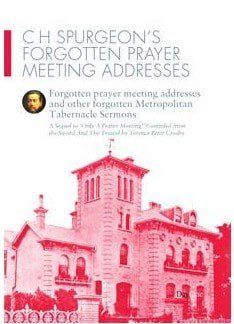This book’s intriguing title conjures up images of a long forgotten manuscript recently discovered in a dusty attic. That’s not quite the case here, as all these addresses have seen the light of day in printed form in The Sword and Trowel. The fact that they have not been reprinted presumably indicates that successive editors of Spurgeonic material have felt them to be of lesser value. Nevertheless, they do deserve to reappear and we are grateful that they have been republished.
The compiler has added to previous collections of ‘forgotten’ material and has done a great deal of careful work to date these articles. Also included is a comprehensive chronological index of Spurgeon’s sermons. Readers will have to pass judgment on the precise value of all this information.
The book consists of 16 addresses given at annual pastors’ conferences or similar occasions. These will be of particular interest to men in the preaching ministry. Some are quite lengthy and testify to Spurgeon’s appeal that pastors were happy to listen to him for protracted periods. Of wider appeal are six shorter communion talks, followed by three meditations occasioned by Spurgeon’s observations of the olive groves in Mentone.
They are described as addresses, but are largely sermons on a variety of texts. They are interspersed with typical illustrations and anecdotes laced with a touch of humour.
Although delivered in the late nineteenth century in Victorian England, they are remarkably up to date. For example, in an address entitled ‘Stand Fast’, the ‘blackest devil of all devils’ is the ‘tendency … to lay aside every truth which is established and received … to take up with any novelty’ (p.33). Readers will soon recognise his acute observations are just as pertinent today.
Some comments, particularly on sermon preparation, are quite startling. If it is your habit to write out your sermons in full and then read from the document, then you are to treat the manuscript like ‘the advice that is given concerning cucumber — peel it, cut it into thin slices, put salt and pepper and vinegar to it, let it lie awhile and then fling it on the dunghill!’ For nothing can ‘take the place of that glorious gift of speaking straight to your hearers out of the fulness of your heart’ (p.150). As always, Spurgeon is thought-provoking, even if you disagree with him.
This is a fascinating addition to the wealth of Spurgeonic material available to us. All readers will find something of interest within.
John Harris
Thornhill






